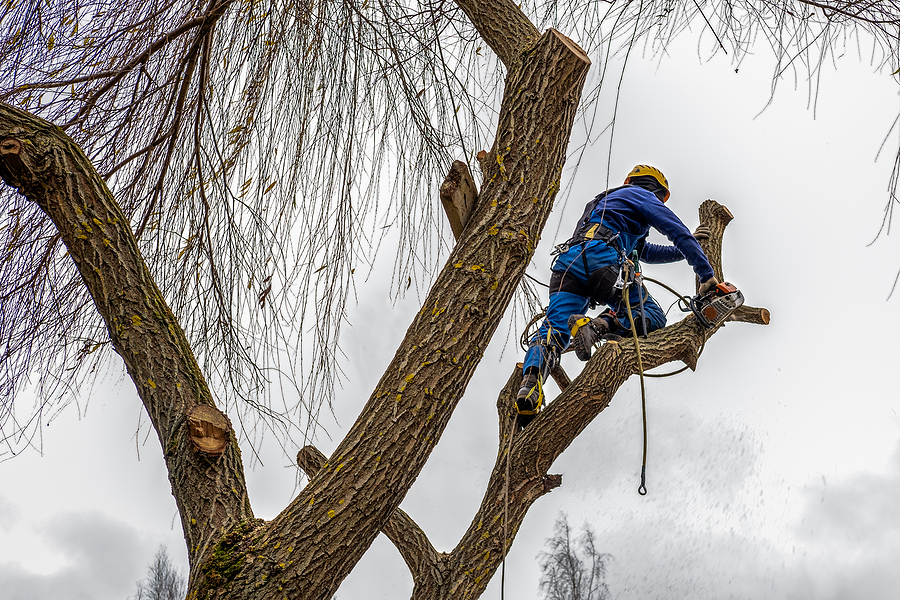Taking care of residential landscaping trees requires a lot of work, but it is worth the effort. Proper tree care can help protect your property from damage caused by falling limbs, keep your lawn healthy and green, and provide you with much-needed shade during hot summer months. Fortunately, tree service doesn’t have to be complicated or expensive. With just 10 vital tips to keep your landscape’s trees healthy and thriving, you can make sure that your trees stay healthy and safe year-round.
From regular pruning to choosing the right fertilizer for each species of tree in your yard, below are 10 must-know tips for homeowners:

How to Take Care of Your Home’s Landscaping Trees
1. Inspect Your Trees Regularly: Regularly inspecting your trees will help you spot any signs of disease or pests that could be damaging the tree’s health and stability. Make sure to look for dying leaves, holes in the bark, or mushrooms growing near the roots.
2. Prune Dead Limbs: Dead branches can easily become a hazard if they are left unchecked. By pruning them away from sheds, walkways, playsets, or other suburban areas, you can ensure that no one is injured due to falling debris.
3. Remove Dangerous Limbs: Limbs that hang too close to edifices (i.e. power lines, sheds, barns, playsets, pool houses, etc.) should also be removed to prevent damage due to high winds or storms. If a tree has large branches hanging over such areas, a tree service should be called to safely remove them.
4. Choose the Right Fertilizer: Different trees need different types of fertilizer, so it is important to select one that is specifically designed for your tree species. This will provide your tree with the necessary nutrients for optimal growth and health.
5. Mulch around the base: Applying mulch around the base of trees helps retain moisture and improve soil fertility near their roots. Make sure not to pile up too much mulch as this can suffocate a tree’s roots and cause chemical imbalances in the soil.
6. Aerate the Soil: Periodically aerating lawn and garden soils help increase water absorption and root growth. This helps landscaping trees get the oxygen and nutrients they need for optimal health and growth.
7. Water Your Trees: Landscaping trees require plenty of water to remain healthy and strong, especially during hot summer months. Give each tree around one inch of water every week either through rainfall or with a garden hose.
8. Monitor Soil pH Levels: Soil pH can affect tree health, so it is important to regularly monitor the acidity or alkalinity levels in your landscape’s soil. If you notice any abnormalities, call a licensed Indianapolis tree service to assess your tree’s needs.
9. Control Pests: Pests such as aphids, beetles and moths can wreak havoc on landscaping trees. If you notice any of these pests, contact a tree service to help control the infestation and protect your tree’s health.
10. Watch for Diseases: Diseases such as root rot or Dutch elm disease can easily spread from one tree to another if left unchecked. Contact a local tree service immediately if you suspect that your tree is suffering from a disease.
Tree Care for Residential Properties
By following these 10 important steps for residential tree care, you can ensure that your landscaping trees and shrubs remain healthy all year round. For more helpful tips or assistance with your trees, contact a licensed Indianapolis tree service company and get expert advice.
Are you in need of expert tree services for your landscaping trees? Contact Timberland Tree Care at 317-348-0811 for licensed and insured tree service in Indianapolis, Indiana. We serve residential and commercial customers all throughout the surrounding Indy areas.
Related Posts:
7 Reasons Why Professional Tree Care is Important
Reasons Why Your Tree Died Over Winter
Tips for Watering an Old Tree
